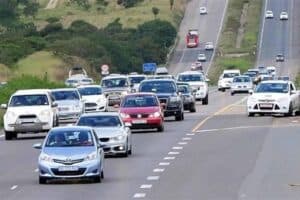Sanral says it is stuck between a rock and a hard place, with a mandate to build roads but without enough funding from government.

In the euphoria of the World Cup in 2010, everybody thought the great new highways were part of the building programme for the tournament, just like the stadiums.
Nobody asked then who would pay for these wonderful new freeways. But when the realisation sank in that the Gauteng Freeway Improvement Project (GFIP) would be financed by e-tolls, millions of motorists refused to pay, which has almost brought the SA National Roads Agency (Sanral) to its knees financially.
Four years down the line, Sanral explains what it has gone through in trying to maintain and create new road infrastructure in order to bring in economic investment.
And according to the state-owned entity (SOE), this has not been easy. There is no money, and their mandate needs to be met.
Here is the latest on the contentious e-tolling issue that some deem may have sparked the revolution against government we see today.
https://youtu.be/VlmSzC9CMdo
FUNDING
Sanral says it is stuck between a rock and a hard place, with a mandate to build roads but without enough funding from government, which means it has to go to lenders to be able to produce world-class infrastructure, which will, in turn, strengthen the economy.
At its Central Operations Centre in Midrand, GFIP project manager Alex van Niekerk says the national funding glass is far from full.
“That glass at the moment is three-quarters full and there are 50 other demands that are maybe more crucial for government.”
Sanral therefore requires clear direction in funding policies, he says. The entity’s chief financial officer, Inge Mulder, agrees.
“That roads funding policy is fairly crucial,” she says, adding that it would factor everything into account on priority funding from the budget and other mechanisms.
Sanral spokesperson Vusi Mona points to an idealistic view of “just getting the money”, without the hassle.
“Ideally for us, we would want to plan the road and say to government here is the plan. If you want to meet your mobility objectives and your economic objectives, this is the road infrastructure that you need; it’s going to cost so much, and we walk away.
“If it’s got to be funded by citizens, citizens must see the plan and how much it costs, and must like the infrastructure – but then we must get to the next question.
“If we want this nice freeway, how are we going to pay for it? Is it going to be through tolling, or through the fiscus, which may have implications on taxation. That shouldn’t be a discussion for engineers.
“We are not on a tolling crusade. If citizens in South Africa can give us a pot of money to build without tolling we will welcome that. The money has to come from somewhere.”
About R40 billion is needed for priority projects Sanral needs executing with and annual allocation of just R15 billion from the fiscus.
A further R150 billion is needed for future projects, says Van Niekerk, adding that Treasury has a hard task on its hands in providing basic needs versus fancy freeways for those who own a vehicle.
A tax versus a user charge was also a redistribution of wealth, with the poor suffering more from being taxed, Van Niekerk says.
“The advantage of a user pay system is you just pay a user charge when you use it.”
Fiscus funding from government would be the best situation for Sanral, he said.
SANRAL’S WOES
Van Niekerk says: “There is unfortunately sometimes the view that if we can get tolling not to succeed then we win, but what we are winning?
“We are winning that a potential funding mechanism is not there any more and wasn’t there for the past six years because of ‘political issues’ and public issues.”
“That is the impact of not having a funding model.”
He said the Act governing Sanral allowed “two main funding schemes”.
“One is that we get a contribution from government and the fiscus. Sanral can also approach the capital markets and the issuing of bonds.”
Sanral does not make policy, it merely implements it, he adds. National Treasury was also clear that they didn’t have the funds.
“They have sufficient money to maintain it, but in terms of implementing these massive projects we need huge capital upfront.
“The other option is to say we don’t do anything. We will keep on maintaining what is there and the congestion will build up.”
To build a new freeway, Van Niekerk says, it is estimated to cost anything between R100 million and R150 million per kilometre. That includes buying the land needed to build on. – [email protected]






